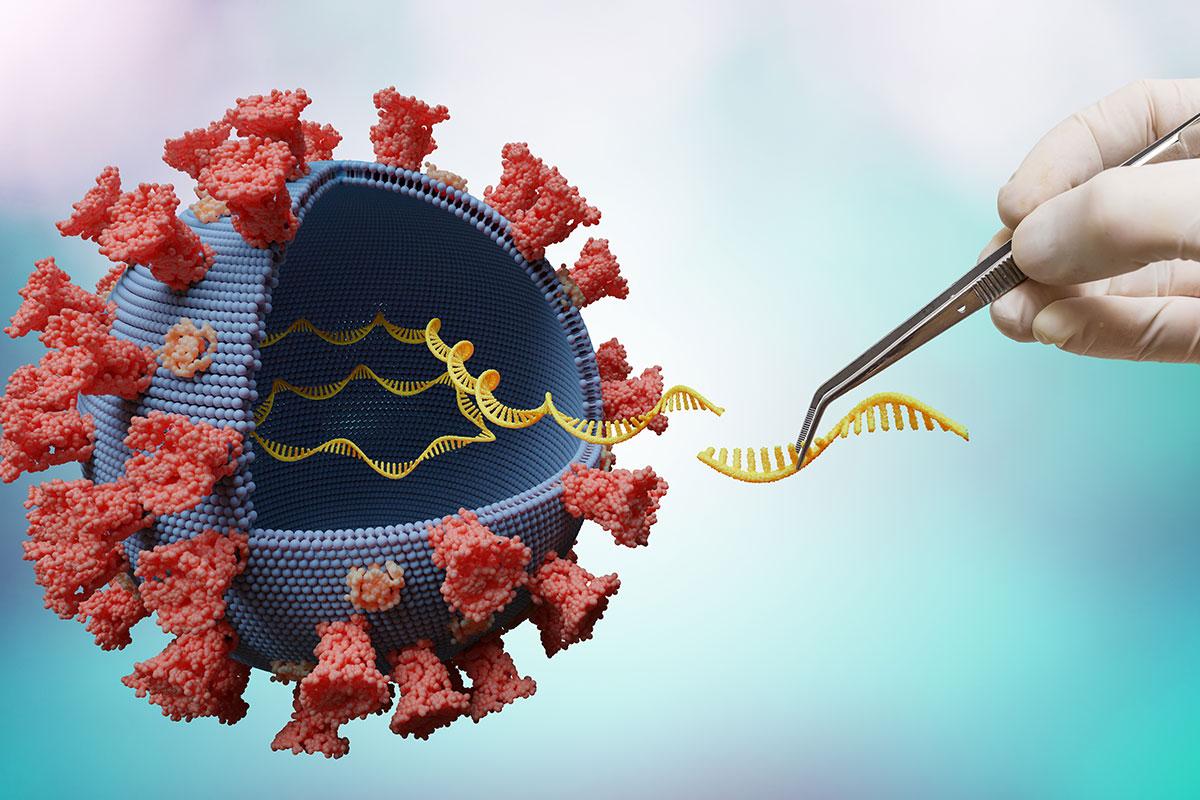Delta Variant in Lebanon Dominates Other Strains
The alarming speed with which the Delta variant became predominant reveals that it is highly transmissible, an LAU study finds.
Sequencing of SARS-CoV-2 genomes at LAU has revealed that the Delta variant had completely replaced the Alpha variant over a span of six weeks in Lebanon, according to a published study by Dr. Sima Tokajian, professor of microbial genomics at the School of Arts and Sciences.
The findings were based on the sequencing of more than 200 genomes at the LAU pathogenomics lab headed by Dr. Tokajian that were derived from SARS-CoV-2-positive samples with the aim of identifying “diversity of location, sampling time, gender, nationality and age,” she said. Alumnus Georgi Merhi (MS ’19) and Biological Sciences master’s student Jad Koweyes assisted in the research.
“Based on our results, we speculate that the Delta variant was introduced to Lebanon approximately between the first week of June and the last week of May,” Dr. Tokajian said.
“In a very short period of time it became the dominant variant. We were detecting Alpha until the first weeks of May, and suddenly we started seeing only Delta. The replacement was very fast. And this is the critical point about Delta is that it is highly transmissible,” she added.
Genomic sequencing decodes the genes of the virus to learn more about it. It allows scientists to identify SARS-CoV-2, monitor how it mutates into new variants over time and analyze how such changes affect the virus’ characteristics.
According to the study, there were several variants circulating in Lebanon in January 2021, but by February “there were just four, with the Alpha variant accounting for 97 percent of samples.”
“In the following two months, all samples contained the Alpha variant. However, this had changed dramatically by June and July, when all samples belonged to the Delta variant,” it added.
Dr. Tokajian – who has been researching SARS-CoV-2 mutations since the outbreak of COVID-19 – most recently received a grant from the World Health Organization (WHO) to secure what is needed to continue the sequencing. The WHO now considers “LAU as a reference lab to do the sequencing to identify the circulating variants in the country,” she said.
Furthermore, LAU, through the pathogenomics lab run by Dr. Tokajian, has been collaborating with the Lebanese Ministry of Public Health (MoPH) and Rafik Hariri University Hospital in a project for the whole-genome sequencing of SARS-CoV-2 recovered from Lebanon.
“We get samples from all over the country on a weekly basis, and we sequence to identify the variants that are circulating. We update the MoPH and the WHO every week,” she said.
Among the collaboration’s objectives is to identify SARS-CoV-2 geographical clusters and genome-based distribution within the Lebanese population.
The project, titled Genetic Code of COVID-19: Insights into the Spread, Evolution, and Control, also helps scientists predict the “local patterns of transmission (geo-social interactions within Lebanon) that would help in better implementing isolation measures.”
The sequenced strains are also being uploaded on the Global Initiative on Sharing All Influenza Data (GISAID), that is hosted by Germany and has facilitated the rapid worldwide sharing of data from all sequenced coronaviruses causing COVID-19.
“In general, sequencing facilities need to share their data on GISAID,” explained Dr. Tokajian. “This is how people have access to the genomes and know what is going on in Lebanon or any other country. This is one of the most important initiatives in this pandemic, this free collaboration or free sharing of data.”
Dr. Tokajian stressed the need for the population to remain cautious and to adhere to wearing masks, social distancing and ensure proper ventilation in closed spaces.
“Worldwide, there is a high number of patients, especially among the unvaccinated population, who are being hospitalized after contracting the Delta variant,” she said.
While vaccines are effective, she said, they do not offer full protection against the Delta variant. Nevertheless, she added, “people who have been vaccinated are less prone to transmit the infection and they are less prone – even if they get infected – to be hospitalized.”
To browse more scholarly output by the LAU community, visit our open-access digital archive, the Lebanese American University Repository (LAUR).
